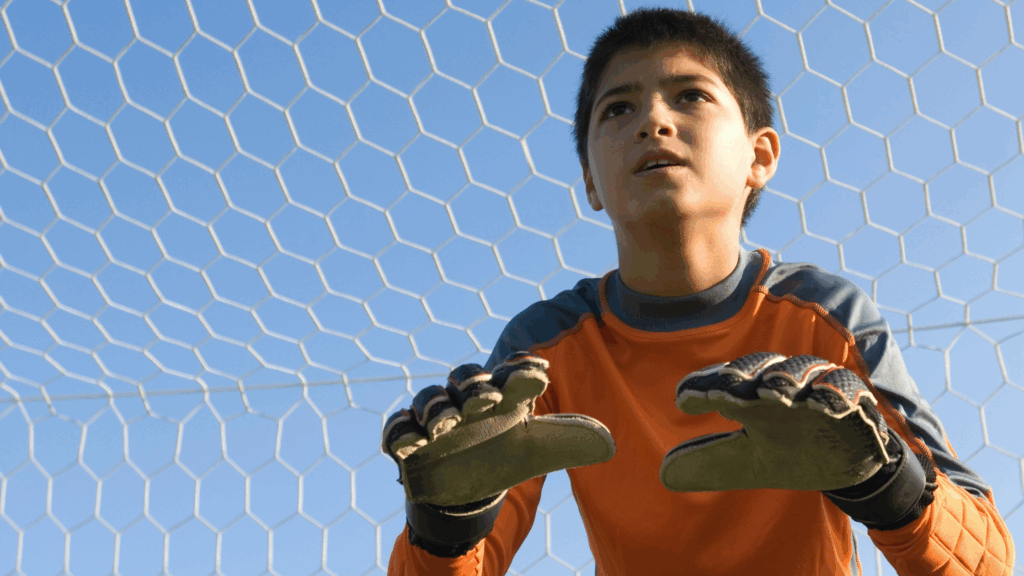
In a previous article, we explored why taking things step by step is important in helping people on their faith journey. But how does this work in the real world? How can catechumenate teams put the idea of gradual initiation into practice?
I am not going to pretend it’s easy to do. A classroom structure in a school year time frame is much simpler to implement. But as we said previously, such a system doesn’t really lead a seeker to deep conversion to the person of Jesus Christ. Guiding someone through their faith journey is tough work. So, knowing this challenge, let’s explore some ways to help people step by step toward Jesus.
Individualize the journey
The most important step is to develop a faith formation plan for each seeker that is based on their own spiritual journey, not a pre-set schedule. Ask good questions about where they’ve been, where they are now in their relationship with God, and where they’d like to get to spiritually. Customize a plan to their desires, background and pace.
If you are a TeamRCIA Premium Member, this course will give you step-by-step guidance on how to do that: Five RCIA Inquiry Questions for Making Disciples.
If you are not yet a Premium Member, check out these resources:
- Five key questions to ask RCIA inquirers
- Seek the Living God
- Five Inquiry Questions that Will Shape Your Seekers’ Journey of Faith: Webinar recording
The most important step is to develop a faith formation plan for each seeker that is based on their own spiritual journey, not a pre-set schedule.
Make the seekers co-responsible
Part of the accompaniment process is helping seekers know if they are ready to take the next step on the journey. The current translation of the Rite of Christian Initiation of Adults says: “sponsors, catechists, and deacons, parish priests (pastors) have the responsibility for judging” if the inquirers are ready to take this next step (RCIA 43).
That word “judging” turns off a lot of catechumenate team members. The good news is that in the new translation, “judging” will be change to “discern.”
It is the particular responsibility of pastors, with the help of sponsors, catechists and deacons, to discern the outward signs of their spiritual dispositions.
OCIA 43
Thinking of “discerning” instead of “judging” puts less responsibility on us and empowers seekers to follow the Holy Spirit’s guidance. We still have a significant role as accompaniers. But that role is to empower seekers to decide when it is time to move forward based on their walk with God and the call of the Holy Spirit.
For TeamRCIA Premium Members, you can learn more about discernment in this webinar: Signs of Conversion in the Seeker: What the New Translation Says
For those who are not yet Premium Members, here some free articles to read:
- RCIA Discernment: What is it and how do you do it?
- Do you know the three Rs of RCIA discernment?
- What Everybody Ought to Know About Discernment
Use apprenticeship
To master any serious skill, you need hands on experience. Bakers have to bake. Singers have to sing. Writers have to write. And those on their faith journey need to “live” as Christians to learn how to be a disciple of Christ. In our step-by-step support for seekers, we must encourage them to actively participate in parish activities and ministries, not just take classes. Use your sponsors and other members of the parish to mentor seekers on how to live as disciples.
We have a lot of resources on apprenticeship. If you are a TeamRCIA Premium Member, this mini-course will really help: RCIA in the Midst of the Community: The Parish Curriculum for Making Disciples
If you are not yet a Premium Member, you can order this book on the same topic:
Also here are a couple of free articles to read:
- Is your RCIA open all year-round? Throw out your syllabus!
- How to use your parish as your RCIA textbook
Focus on Healing More than Teaching
For initiation to take root, the seekers’ deepest wounds need healing. Without inner healing, they will struggle to embrace the Gospel fully. Our deepest learning happens through the binding up of wounds. Many inquirers and catechumens carry painful wounds from childhood or past church experiences — family issues, rejection, abuse, trauma. They need to work through this bad news in order to hear the Good News.
Healing happens gradually, through building trust, active listening, prayer, counseling referrals, and reconciliation rituals. Catechumenate teams need to know when to stop talking and start healing. Ask open questions, offer reassurance of God’s mercy. Pray together for inner peace.
The minor rites in the Rite of Christian Initiation of Adults are designed exactly for this purpose. Use the minor exorcisms and blessings to bring closure, console hearts, and confer strength. Anoint those struggling, bless those grieving, wash feet when worn out. Take a whole-person approach to healing body, mind and spirit too.
If you are a TeamRCIA Premium Member, check out the second video in this video marathon: Prepare and Celebrate the Rites of the RCIA.
Also see this webinar: The Most Underused Teaching Tool of the RCIA: Rites during the Catechumenate (Minor Rites)
If you are not yet a Premium Member, see these resources for more guidance:
- What are celebrations of the word? How to give your RCIA seekers a foretaste of heaven
- 10 times to pray with an RCIA catechumen who is struggling
- 15 occasions to bless an RCIA catechumen
- Five times to anoint a catechumen during the RCIA process
Healing happens gradually, through building trust, active listening, prayer, counseling referrals, and reconciliation rituals. Catechumenate teams need to know when to stop talking and start healing.
Allow flexibility in the length of the catechumenate
It is not unusual for the conversion to take several years. The new translation will say, “The catechumenate, or pastoral formation of the catechumens, should last long enough for their conversion and faith to mature, even over several years, if need be” (OCIA 76).
The goal is mature discipleship, not finishing by Easter. Only celebrate sacraments when there is evidence of spiritual preparedness, not because it fits the parish calendar. God’s timing takes primacy over ours.
If you are a TeamRCIA Premium Member, you will want to watch this webinar: Develop a Year-Round RCIA Process
Also check out this video marathon: Move to a Year-Round RCIA
If you are not yet a Premium Member, here are a couple of articles and a book to read:
- Is your catechumenate open all year-round? What does year-round mean?
- What is ongoing (year-round) RCIA, really?
- A Vision for Conversion
As I said, all of this can seem like a lot more work than a program of classes delivered over a few months. But that kind of program rarely creates lifelong disciples. A gradual initiation process will bear abundant fruit in the long run. When we slow down and truly walk with seekers, we allow the Spirit to take the lead. This is the heart of disciple making: helping people learn to hear and respond to God’s voice, not just checking boxes on a sacramental to-do list. Our patience — and hard work — will be rewarded.
Learn more
We’re going to go much deeper into why a gradual process is critical to the conversion process and how to make it work in your parish in our next webinar. Registration is free, and we’d love to have you join us.
Can you help me out?
I’d love to know how this is landing. Can you share a word or a phrase about how this article resonates with you? Does it speak to your experience? Share your thoughts in the comments box below. Thanks for being part of the conversion!











